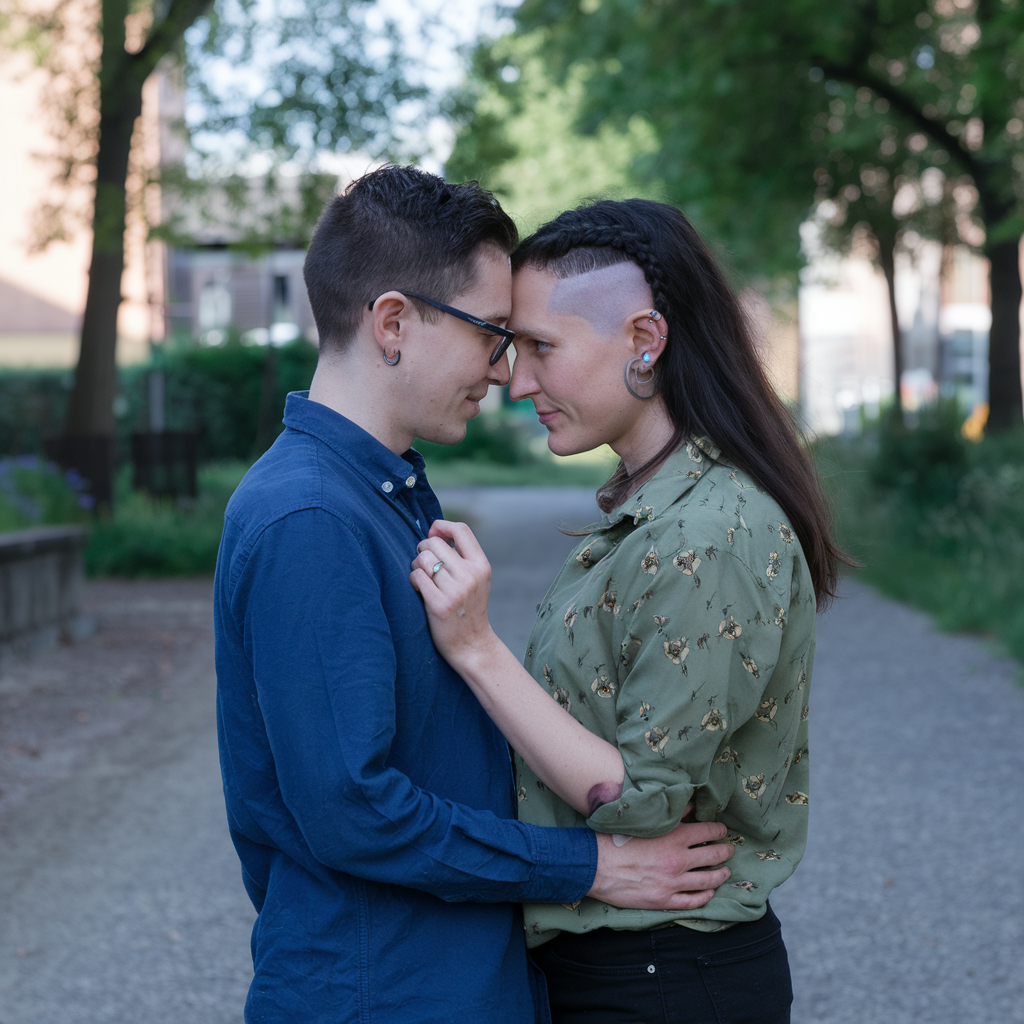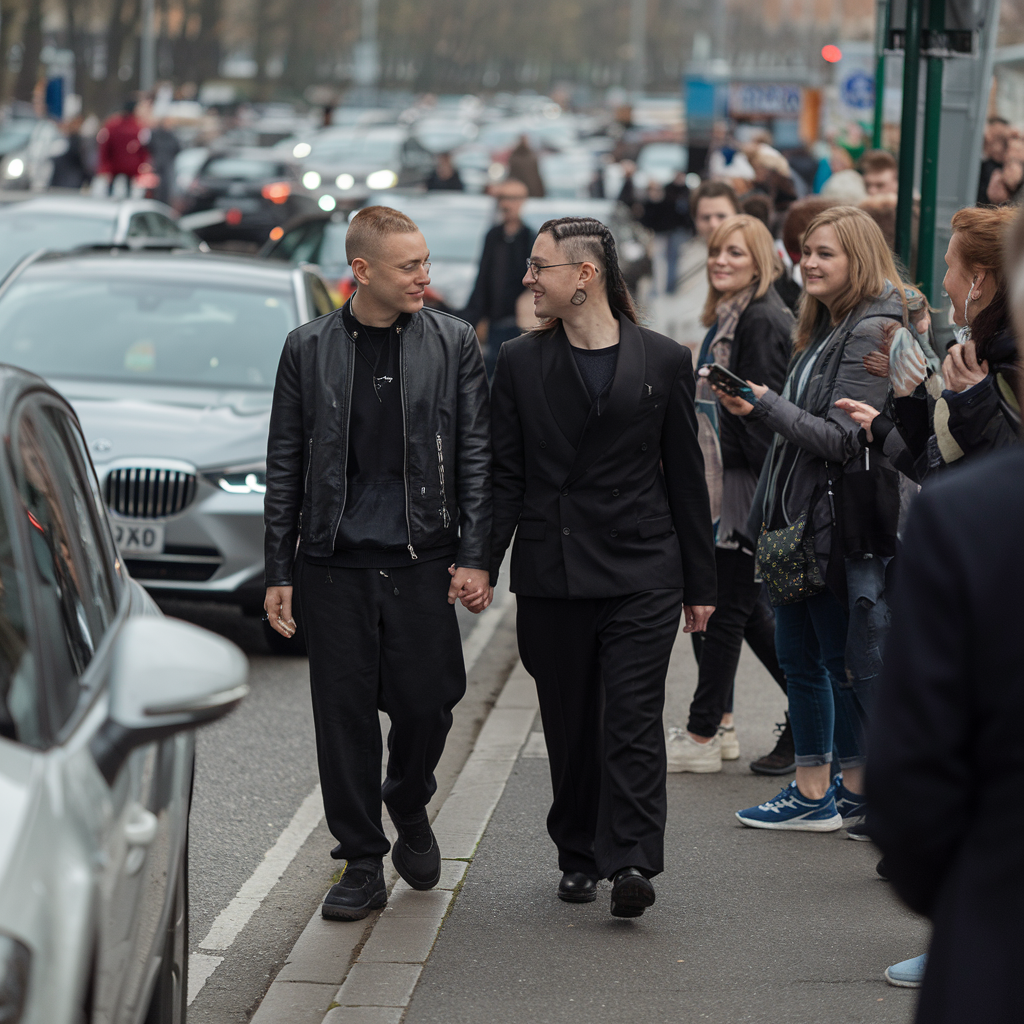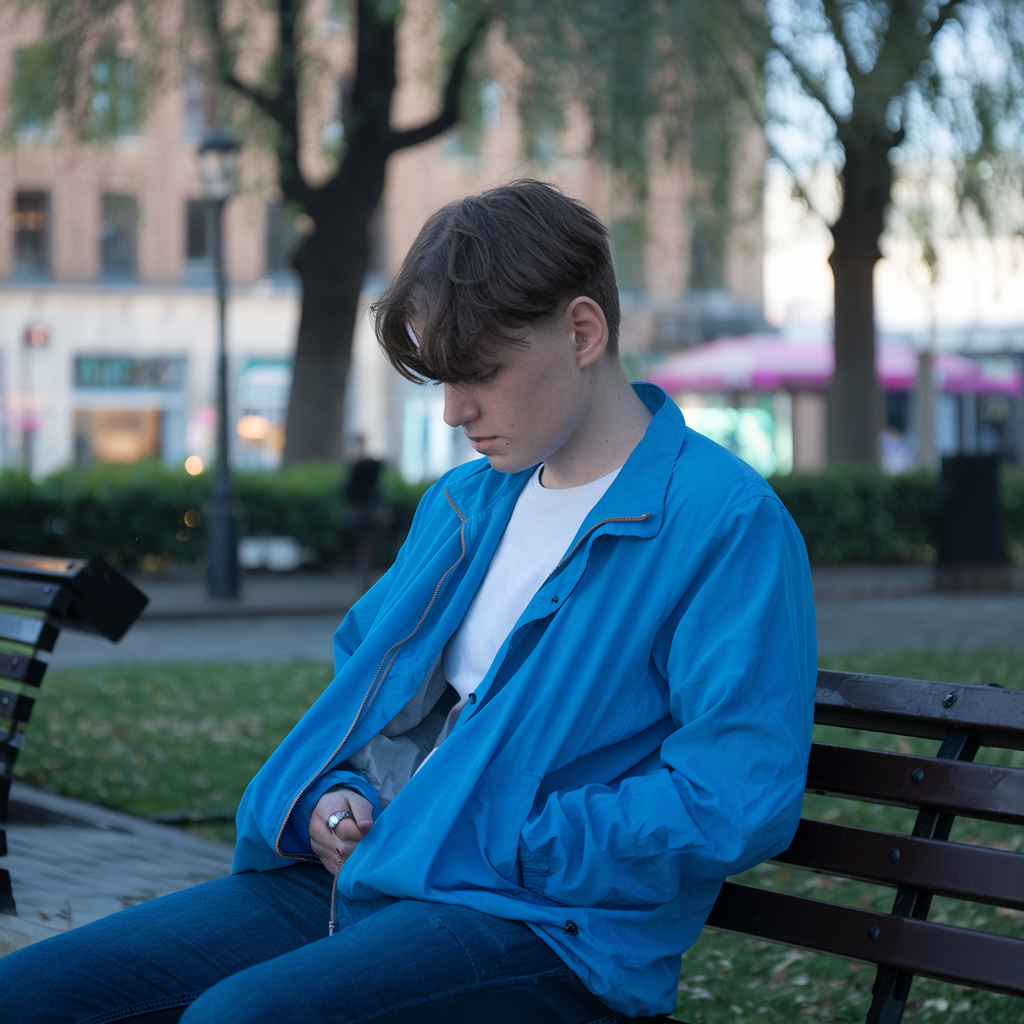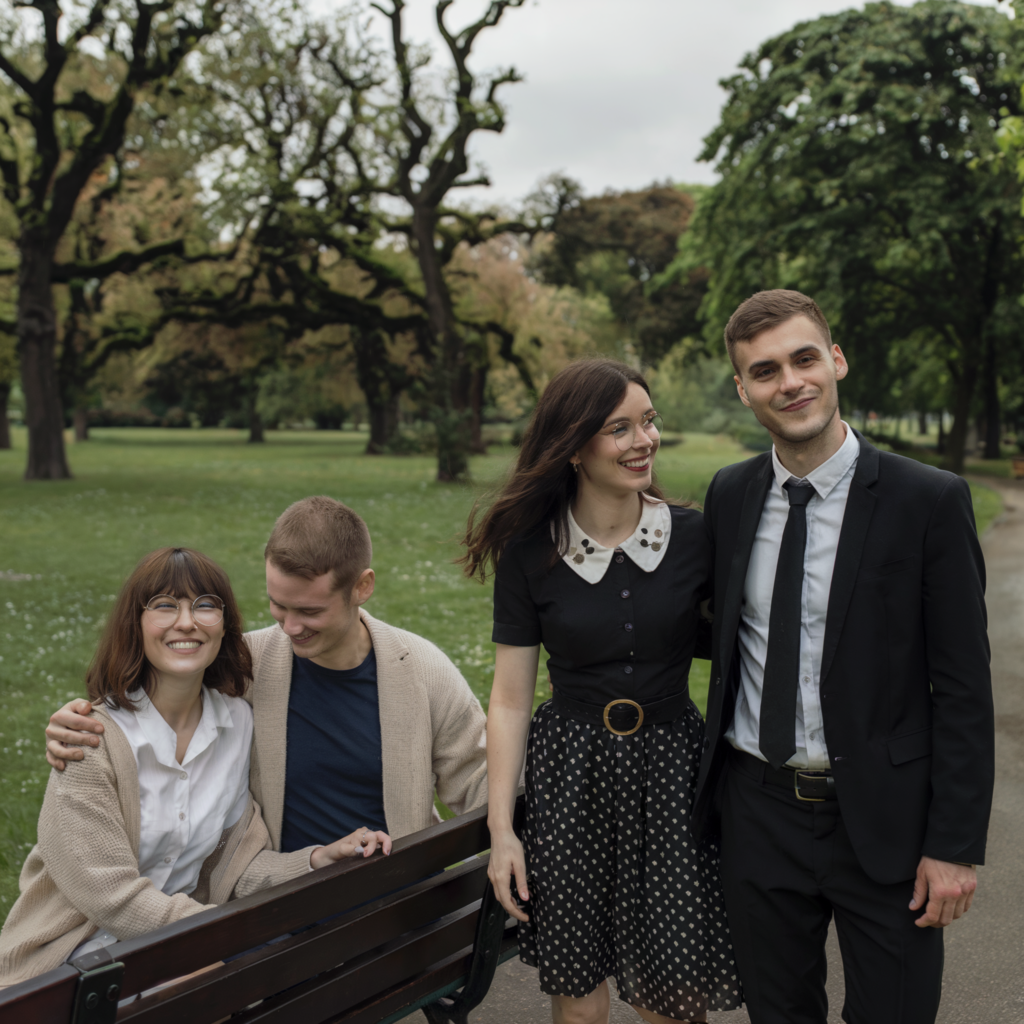Key points
Here are 3 key bullet points about what asexual means:
- An Asexual person is a person who does not experience sexual attraction
- Asexual individuals may still feel romantic attraction and have emotional relationships
- Asexuality exists on a spectrum, some asexuals enjoy sex while others are repulsed
Contents
Understanding Asexuality

Asexuality is the lack of sexual attraction to others like everyone else. Asexual individuals can experience romantic relationships and emotions, but the urges or desires for sex itself are not that stringent. Some asexuals love cuddling or kissing, while others aren’t really into that physical stuff, so there’s a lot of variety amongst asexuals. The main point is that they do not experience sexual attraction that controls them like for most people.
Definition of Asexuality
A person who does not experience sexual attraction is asexual. Just because someone with a low sex drive doesn’t mean they choose to abstain from sex; it just means they don’t have the drive. Asexual people could have romance or no romance. Some people have sex to satisfy a partner or just to give it a go. But generally, sexuality is not a big heard or need for asexuals.
Distinguishing Asexuality from Celibacy and Abstinence
Celibacy is abstaining from sexual relationships, with or without marriage, usually for religious reasons. Abstinence involves refraining from sexual intercourse until one is married. These are choices. Asexuality isn’t simply a phase or a feeling; it is a sexual orientation.
Common Misconceptions about Asexuality
People often think that asexuals are repressed, some sort of broken thing or afraid of intimacy. Not being sexually attracted to anyone is just how asexuals naturally are – it is not a choice and not a disorder.
A second myth says that asexuals don’t want relationships at all. Naah. In fact, a lot do have romantic relationships but they just don’t involve sex. People who are asexual don’t have cold or robotic personality. Asexual people have normal feelings and connections but little interest in sex itself.
Asexuality and Identity

Asexuality is something that not many people might be aware of or have heard of. Many people believe that not feeling sexual attraction means there may be something wrong with you. But people with asexuality simply do not feel this kind of attraction.
It’s all good, nothing bad about it! Identity asexual is very complicated for some people because society emphasizes sex. Asexual people often go through a journey of self-discover and have to learn how does asexuality fit into their sense of self.
Asexuality as a Sexual Orientation
You said it—being asexual is a real thing, just like being straight, gay, or bi! It denotes that one lacks sexual attraction. Some asexuals might still have sex and others do not. Some people really enjoy romance while others don’t. It’s a spectrum. The main thing is that you aren’t sexually attracted.
Choosing to be asexual is not possible. Being gay is a life choice that we can make it look that way.
Variations within the Asexual Spectrum
There are many types of asexuals.
- Aromantic – asexuals don’t experience romantic attraction.
- Demisexuals – only have sexual attraction after forming a close emotional bond.
- Greysexuals – occasionally or less often feel sexual attraction.
So, even though the term ‘asexual’ means not experiencing sexual attraction, there’s a lot more to it!
The Role of Romantic Orientation in Asexual Identity
Love and sexual attraction are different things. A lack of sexual attraction doesn’t eliminate the lust for a romantic relationship. There are many asexuals who might be hetero-romantic, homo-romantic, bi-romantic, etc. It shows you who they want to date. To understand asexual identity, it is need to understand the split between sexual and romantic orientation.
Cultural and Social Perspectives

Some people have a difficult time understanding asexuality because it’s so opposite from what the vast majority experiences. Just because something is not the norm doesn’t make it wrong or bad. Asexual people deserve acceptance and support like everyone else.
So much less is known about the history of asexuality. It was once thought of as a disorder or something to fix rather than a true orientation. But we are wiser now. Being asexual is totally legit even if not many peeps have heard of it
Asexuality in Different Cultures
Asexuality is everywhere but isn’t always accepted. Some cultures are more open to being “ace” while others make it hard. But people who are asexual have always been around in all sorts of community.
Media Representation of Asexuality
Not a ton of ace characters exists in films, television, books, etc. It is getting better but slow. More stories depicting asexual lives as typical are essential. Representation is important for seeing asexuality more.
Personal Experiences and Narratives

Being asexual can be a lonely experience. A lot of people who are asexual think that they do not belong since society expects everyone to desire sex. Many asexuals thought they had a problem or disorder until they found out it’s a real thing. Realizing I am asexual was a journey that was both stressful and liberating. Telling stories creates building blocks of community and tells asexual people they ain’t alone.
Coming Out as Asexual
It takes guts to be asexual. Some people are scared to reveal their true self because it might not be accepted. Many don’t want to deal with invasive questions or non-believers of asexuality. They don’t come out to avoid drama. However, expressing your emotions can allow you to be lighter. Having your loved one’s support can matter a lot. It is your personal choice to come out – do what suits you!
Asexual Relationships and Dynamics
Asexual people can have relationships just like everyone else. Some are aromantic while others want romance but no sex. Talking and making concessions help partners meet each other’s needs. Holding hands is about emotional closeness. So can cuddling. People that are asexual are not defective or frigid. They just feel attracted differently.
Challenges Faced by Asexual Individuals
Asexual folks get misjudged all the time. They think that they just haven’t met the right person yet or that something is wrong with them. Doctors pathologize asexuality. People they are close to push them to have sex. People think asexuality is abnormal. But being asexual is valid too. Asexual folks need pamper and care just like anyone else.
Community and Support

The asexual community is small but strong. We might not be the biggest or the loudest but we support one another like a family. We can find people who understand our situation in online forums and local meetups. We help each other with advice, we uplift each other, and we celebrate difference.
Asexual Community and Resources
The internet let asexuals meet and form a community. Early places like AVEN made spaces to share experience and easily share information. Today, there are tons of subreddits, discord servers and facebook groups. These interstate help asexuals better understand their orientation, find acceptance, and optionally meet partners.
Support Networks for Asexual Individuals
Feeling understood is so important when connecting with other asexuals. In person and online groups are safe spaces where people open up. If you want, mental health practitioners can also help with this.
We want to learn to take things easy. Everyone should feel accepted and whole, regardless of their orientation.
Advocacy and Awareness Efforts
Activists promote the awareness and acceptability of asexuality. They push for laws to protect LGBTQ, educate the masses, and work with the group. We still need to tackle the problem of ignorance and discrimination. But the asexual community keeps on marching on and saying our orientation is valid.
Frequently Asked Questions (FAQ)
What does it mean to be on the asexual spectrum?
The asexual spectrum refers to the range of identities related to asexuality. It includes people who experience little to no sexual attraction, like asexual, gray-asexual, and demi-sexual folks.
Can asexual people have a libido?
Yes, asexuality is about sexual attraction, not libido. Many asexual people have a libido or sex drive even though they don’t experience sexual attraction.
Do asexual people date and have romantic relationships?
Absolutely. Asexuality exists on a separate spectrum from romantic orientation. Asexual people can be heteroromantic, homoromantic, biromantic, or aromantic.
Is asexuality considered a sexual orientation?
Yes, asexuality is generally considered a sexual orientation, like homosexuality and heterosexuality, defined by a lack of sexual attraction.
Can trauma cause someone to be asexual?
No, trauma does not cause asexuality. While difficult life events may shape someone’s attitudes toward sex, asexuality is an innate orientation.
Do asexual people face discrimination?
Unfortunately, asexual people are sometimes victims of discrimination, including corrective rape, harassment, and exclusion from LGBTQ+ spaces.
Can someone's asexuality change over time?
For some people, asexuality is fluid and may shift or change over their lifetime. For others, it is a fixed orientation. No one should feel pressured to change.
How do asexual people navigate a sexualized society?
It can be challenging for asexual people to navigate societal expectations around sex and relationships. Having a supportive community helps many ace individuals find acceptance.
Are there famous or historical asexual figures?
Though speculative, some suggest famous asexual figures may include Isaac Newton, Emily Bronte, Tim Gunn, Janeane Garofalo, and more.
Where can asexual people find resources and connections?
Online communities like AVEN, meetup groups, Pride events, and asexuality organizations provide resources and connections for the ace community.

I am a free-spirited author with the focus of relationships, travel, mental health, and womanhood. I am still new to the writer scene but am excited for the journey that awaits.